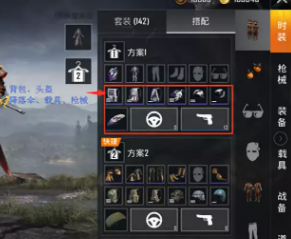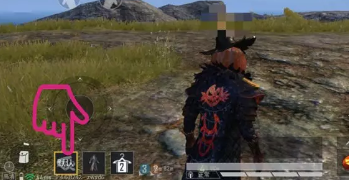one dollar crypto
Survey: Most Japanese companies expect Trump 2.0 to damage the business environment. According to a survey in Reuters, nearly three-quarters of Japanese companies expect Trump's second US presidency to have a negative impact on the business environment of Japanese companies. The reasons for concern include the planned tariff increase and trade tensions. The manager of a machinery manufacturer wrote in the survey: "It is difficult to predict his policies, which makes it difficult for our client company to make investment decisions"; Although 73% of the respondents said that Trump's second entry into the White House will not have a favorable impact on their business environment, the rest of the respondents expect a positive impact, including the expectation that domestic demand in the United States will expand through tax cuts, and energy and environmental policies may also be revised; When asked what measures they would take if Trump raised tariffs, two-thirds of the respondents said their business strategy was unlikely to change, 22% said they would cut costs, and 8% said they would work hard to expand their cultivation in markets outside the United States.CICC: Inflation in the United States may push the "hawks to cut interest rates". The CICC research report said that inflation data opened the door for the Fed to cut interest rates next week, but we also predicted that the "hawks to cut interest rates" will be staged next week, and the Fed may cut the guidance on interest rate cuts in the bitmap. We predict that the new bitmap will show that the total interest rate will be cut twice in 2025 (compared with four times before), and the federal funds rate will be lowered to a neutral level of 3.75% to 4% by the end of the second quarter of next year.South Korea's finance minister said that he would pay close attention to the financial market and respond to boost investor sentiment when necessary.
The vice chairman of Bosch's supervisory board said that as many as 10,000 jobs in Germany are at risk. Frank Sell, vice chairman of the supervisory board of Bosch, the world's top auto parts supplier, said on Wednesday that a series of layoffs announced by Bosch recently have put about 8,000-10,000 jobs in Germany at risk. Sell, who is also the chairman of the labor committee of Bosch's key business mobile solutions division, said that Bosch's overall plan has created an atmosphere that he called "absolutely intolerable" within the group. Bosch has about 135,000 employees in Germany.South Korea's Seoul Composite Index rose to 1%.The New Zealand dollar just broke through the 0.5800 mark against the US dollar, and the latest report was 0.5801, up 0.29% in the day; The Australian dollar just broke through the 0.6400 mark against the US dollar, and the latest report was 0.6401, up 0.51% in the day.
Han Dongxun, leader of South Korea's ruling party: Yin Xiyue has no intention of stepping down early. On December 12, local time, Han Dongxun, leader of South Korea's ruling party, said that President Yin Xiyue confirmed that he had no intention of stepping down early. Han Dongxun said that people involved in the martial law incident, including the president, should be severely punished, and Yin Xiyue should immediately remove the right to operate state affairs, including the commander-in-chief of the army. In addition, Han Dongxun said that he would vote in favor of the impeachment case, and members of the ruling party should vote on the impeachment case according to their conscience.Yin Xiyue denied that emergency martial law was a civil strife. South Korean President Yin Xiyue made a speech today (December 12), denying that "emergency martial law" was a "civil strife". He once again criticized the opposition party for enslaving Congress and abusing the power to impeach public officials. Yin Xiyue said that both impeachment and investigation will face it head-on.Brazilian farmers' lobby demanded the lifting of the ban on planting soybeans in the deforested Amazon rainforest. A Brazilian farmers' lobby is seeking to terminate a 20-year-old agreement that prohibits grain traders from buying soybeans from deforested farms in the Amazon rainforest, claiming that the agreement has created an unfair competition environment. Aprosoja-MT, a soybean farmers' lobbying organization located in western Mato Grosso, said on Wednesday that the agreement encouraged "purchasing cartels" and harmed the interests of farmers who strictly abide by the forest laws of South American countries. The statement said that it had formally asked the anti-monopoly watchdog CADE to terminate the agreement.
Strategy guide
12-14
Strategy guide
12-14
Strategy guide 12-14
Strategy guide
12-14Strategy guide 12-14
Strategy guide
Strategy guide 12-14
Strategy guide 12-14
Strategy guide


























